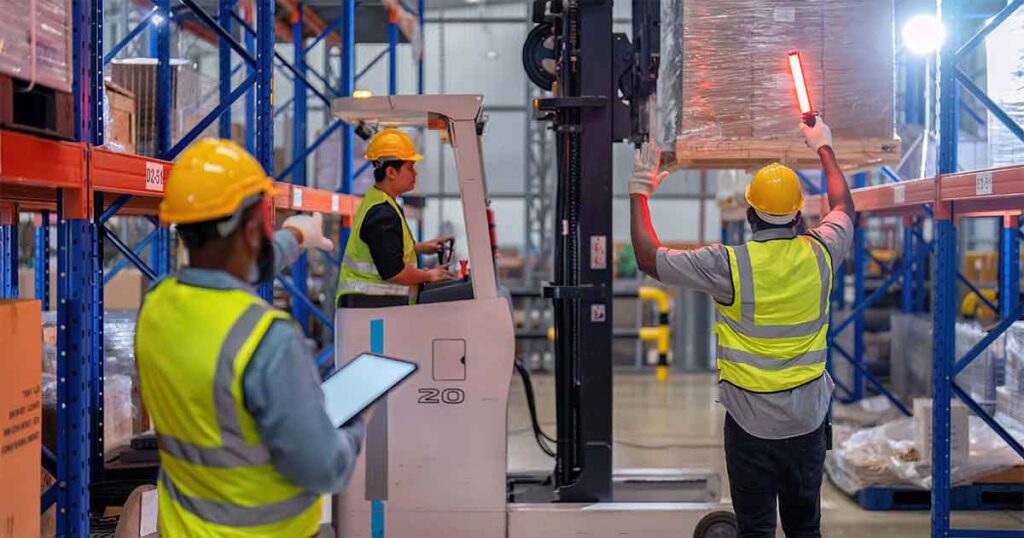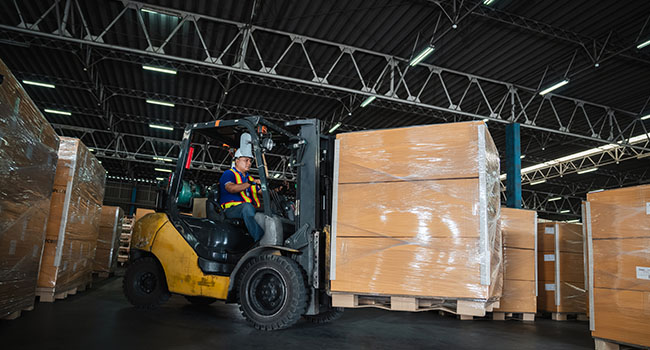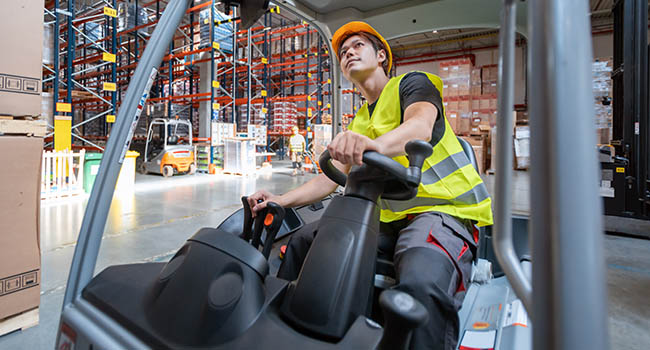A1 Quality Logistical Solutions

- By Haley
- October 8, 2024
Table of Contents
Key Highlights
- Material handlers are essential for efficient warehouse operations.
- They ensure the smooth flow of goods, from receiving to shipping.
- This role involves physical tasks, operating machinery, and meticulous record-keeping.
- Career progression often involves specializing in areas like forklift operation.
- While physically demanding, the job offers opportunities for those seeking a hands-on role in a fast-paced environment.
Introduction
In the complex field of logistics and supply chain management, material handling is an essential role in a warehouse. This article looks at what a material handler does including their job duties, the skills needed, and how to grow in this career. If you want a job that is physically active and makes a real difference, then a material handler job description could be just right for you.
Understanding the Role of Material Handlers in Warehouses
Material handlers act as leaders of the warehouse, making sure that products move through with ease. They do much more than just carry boxes. By receiving and sort inventory, preparing and loading items for shipment, their jobs impact all parts of the warehouse process.

Key Responsibilities and Daily Tasks
A typical day for a material handler mixes physical work with careful attention to detail. Here’s what their day looks like:
- Loading and Unloading: They use tools like forklifts and pallet jacks. Often, they have special attachments like magnets or grapples to help load and unload trucks safely and efficiently.
- Inventory Management: They look after the warehouse inventory. This means they receive, unpack, scan, and store goods to make sure everything is in the right place.
- Order Fulfillment: Material handlers connect inventory with shipping. They pick and pack orders carefully to ensure accuracy and on time shipping.
- Shipping and Receiving: They handle goods coming in and going out. They check shipments against documents and prepare items for transport.
- Housekeeping and Safety: Material handlers move obstacles, get rid of scrap materials, and follow safety rules to avoid accidents and keep a warehouse clean.
The Impact of Material Handlers on Efficiency and Productivity
Material handlers are key in making sure that warehouses work at their best and are consistent.
They help organize storage, improve how goods move, and cut down on mistakes. This has a big effect on a company’s profits. By delivering materials on time, they stop production delays and keep customers happy.
Additionally, by upholding safety rules, a safer workplace means lower chances of accidents and time lost. In short, material handlers help keep business running smoothly and act as the engine flowing the goods through a warehouse.
Essential Skills for Material Handlers
To excel as a material handler, you need both technical skills and solid people skills. You must be able to use machines safely and effectively. This should also include paying close attention to details. In a busy warehouse, it is important to work well on your own and with others too.

Technical Skills and Certifications
While a high school diploma is generally the minimum requirement, specialized skills can dramatically enhance career prospects.
Employers tend to seek individuals certified and proficient in operating forklifts, pallet jacks, and other warehouse equipment. Obtaining certifications for these skills demonstrates competency and commitment.
Here’s a breakdown:
Certification | Description |
Forklift Operator Certification | Validates the ability to safely and efficiently operate forklifts. |
Pallet Jack Certification | Demonstrates proficiency in using manual and electric pallet jacks. |
Warehouse Safety Certification | Highlights knowledge of safety protocols and best practices in warehouses. |
Soft Skills for Effective Communication and Teamwork
For a material handler, good communication is very important, in addition to technical skills.
Material handlers often talk to team members, supervisors, and sometimes outside vendors. This means they need to communicate clearly, listen well to instructions and share updates across departments within the warehouse.
Working together is key in warehouse jobs and material handlers are no different. Material handlers usually work closely with others to finish tasks, so having a friendly and helpful attitude is necessary. Furthermore, having a strong work ethic, being trustworthy, and caring about safety are very important traits in this physically tough job.

Conclusion
Material handlers are critical for running a smooth and safe warehouse. They set an example by leading with efficiency, productivity, and safety. Their jobs include both technical skills and helpful people skills. They handle materials and promote good communication and teamwork. Material handlers adjust to the changing needs of the warehouse, which helps boost productivity and safety. For warehouse managers, it is important to understand and value the work of material handlers to truly understand your operation and where improvements can be made.
Frequently Asked Questions
What are some types of material handling equipment?
Material handling equipment includes conveyors, forklifts, automated storage and retrieval systems, hoppers, reclaimers, stackers, bucket and grain elevators, pallet trucks, hand trucks, side loaders, and order pickers.
What is the most flexible material handling equipment?
There are different types of material handling equipment and each has its function and use. Among the types of equipment, industrial trucks like forklifts, are recommended as the most flexible. They come in different shapes and sizes to accommodate even narrow-aisle warehouses. Forklifts have the ability to carry loads of different weights and have attachments for fragile materials.
How do material handlers contribute to warehouse safety?
Material handlers play a major role in keeping warehouses safe. They follow rules when handling equipment and materials. By using the right attachments and techniques for loading and shipping, they reduce the chances of accidents. This helps make sure shipments are secure and the work environment is safe.

Haley serves as the Marketing Manager for A1 Quality Logistical Solutions. She joined A1QLS in 2023 with her prior experience gained with GXO and XPO Logistics.
